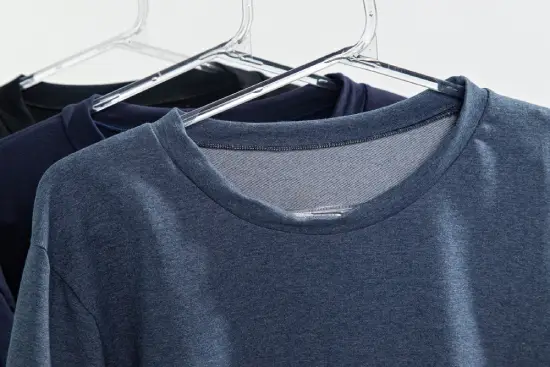In the world of fashion and retail, understanding the nuances between white label clothing and private label clothing can significantly impact your business strategy and success. Two prominent models that businesses often consider are white label clothing and private label clothing. Although these terms are sometimes used interchangeably, they represent distinct approaches with unique benefits and challenges. Grasping the difference between these two can significantly influence your brand strategy, product development, and market positioning.
What is White Label Clothing

It refers to products manufactured by one company that other companies rebrand and sell as their own. These products are typically produced in bulk and are generic in nature, allowing various retailers to purchase them and add their own labels and branding. White label clothing is advantageous for businesses looking to quickly enter the market without the time and expense involved in designing and manufacturing their own products. By partnering with white label clothing manufacturers, companies can offer a range of ready-made products under their own brand name, often with minimal modifications.
The manufacturing process focuses on efficiency and standardization, resulting in consistent quality and cost-effective production. By producing in large quantities, manufacturers can achieve economies of scale, reducing the cost per unit and making these products affordable for retailers.
Retailers who buy white label clothing can add their own branding, such as labels, tags, and packaging, to make the products appear as though they were created by the retailer. This process allows retailers to create a cohesive brand image without the time and expense involved in designing and manufacturing their own products. The level of customization is generally minimal, with the primary product design remaining unchanged, but branding elements can be tailored to fit the retailer’s brand identity.
What is Private Label Clothing

Private label clothing, on the other hand, involves products that are manufactured by a third-party but designed and branded specifically for a particular retailer. This approach gives businesses more control over the design, quality, and production process. Private label clothing manufacturers work closely with retailers to create unique products that reflect the retailer’s brand identity and meet their specific requirements. This option is ideal for businesses looking to differentiate themselves in the market with exclusive designs and higher quality standards, often resulting in a stronger brand presence.
Private label clothing manufacturers work closely with retailers to develop products that meet their exact specifications. This process involves selecting materials, defining design elements, and setting quality standards. The collaboration between the retailer and the manufacturer ensures that the final products align with the retailer’s brand identity and appeal to their target audience. This bespoke approach allows retailers to create clothing lines that are unique to their brand and cannot be found elsewhere.
Unlike white label products, private label clothing is exclusive to the retailer who commissions it. This exclusivity helps build a strong brand identity and differentiates the retailer’s offerings from competitors.
What are the Differences between White Label and Private Label Clothing
Understanding the key distinctions between white label clothing and private label clothing is essential for making informed business decisions. Each approach has unique implications for investment, branding, and overall business strategy.
Return on Investments
White label clothing often offers a faster ROI due to lower upfront costs and quicker time to market. However, private label clothing can potentially provide a higher ROI in the long run, as unique products and strong brand identity can command higher prices and foster customer loyalty.
Particularity
Particularity refers to the uniqueness and customization of the products. White label clothing is generally less distinctive, as the same products can be sold by multiple retailers under different brands. Private label clothing, however, is tailored to the retailer’s specifications, resulting in unique products that stand out in the market and align closely with the brand’s identity.
Investment
The initial investment required for white label clothing is typically lower, as the products are pre-designed and produced in bulk by white label clothing manufacturers. This makes it a cost-effective option for businesses looking to start or expand their product lines quickly. In contrast, private label clothing requires a higher investment due to the involvement in the design, development, and production processes. However, this investment can be justified by the potential for higher profit margins and stronger brand differentiation.
Experience
White label arrangements are often simpler and require less involvement from the retailer, making it an attractive option for those new to the industry. On the other hand, private label partnerships demand more collaboration and oversight, but offer greater control over the final product, which can enhance the overall brand experience for customers.
Trademarks
With white label clothing, the products are generic and not protected by trademarks, meaning multiple brands can sell similar items. Private label clothing, however, often involves unique designs and branding that can be trademarked, providing legal protection and exclusivity in the market.
Which One to Choose
Deciding whether to opt for white label clothing or private label clothing depends on your business goals, budget, brand identity, and long-term strategy. Both approaches have distinct advantages and are suitable for different types of businesses. Here’s a guide to help you determine which option might be best for your brand:
Choose White Label Clothing If
- You Want to Enter the Market Quickly: White label clothing is ideal if you need to launch your products quickly. Since these items are pre-manufactured and only require rebranding, you can start selling in a short amount of time.
- You Have a Limited Budget: With lower upfront costs and no need for product development, white label clothing allows you to save money initially. This is particularly beneficial for startups and small businesses with tight budgets.
- You Prefer Simplicity: The process of working with white label clothing manufacturers is straightforward. You select the products, add your branding, and start selling. This simplicity can be appealing if you’re new to the industry or lack experience in product design and manufacturing.
- You Want to Test the Market: If you’re unsure about how a particular product will perform, white label clothing offers a low-risk way to test the market. You can gauge customer response without investing heavily in product development.
Choose Private Label Clothing If
- You Aim to Build a Strong Brand Identity: Private label clothing allows you to create unique products that reflect your brand’s personality and values. This distinctiveness can help you stand out in a crowded market and build a loyal customer base.
- You Want Higher Profit Margins: While the initial investment is higher, private label clothing can lead to higher profit margins. Exclusive products can be sold at premium prices, and strong branding can foster customer loyalty and repeat purchases.
- You Require Customization and Quality Control: Private label clothing manufacturers work closely with you to develop products that meet your specific requirements. This control over design, materials, and quality ensures that the final products align with your standards and brand vision.
- You’re Looking for Long-Term Growth: Investing in private label clothing can be a strategic move for long-term growth. Unique and high-quality products can help establish your brand as a trusted name in the industry, leading to sustained success and expansion opportunities.
Conclusion
In conclusion, the choice between white label clothing and private label clothing depends on various factors, including budget, time to market, brand identity, and long-term business goals. White label clothing offers a quick and cost-effective way to launch products, while private label clothing provides the opportunity to create unique, branded items that can drive higher customer loyalty and profitability. Understanding these differences and working with the right manufacturers can help you strategically position your clothing brand in the competitive fashion industry.
Popular Search:
Best Clothing Manufacturers Designer Shirt Manufacturers Men’s Designer Shirt Manufacturer in India Men’s Shirt Manufacturers Private Label Clothing Manufacturers Private Label Clothing Manufacturers in India School Uniform Manufacturers Uniform Manufacturer in India White Label Clothing White Label Clothing Manufacturer in India

